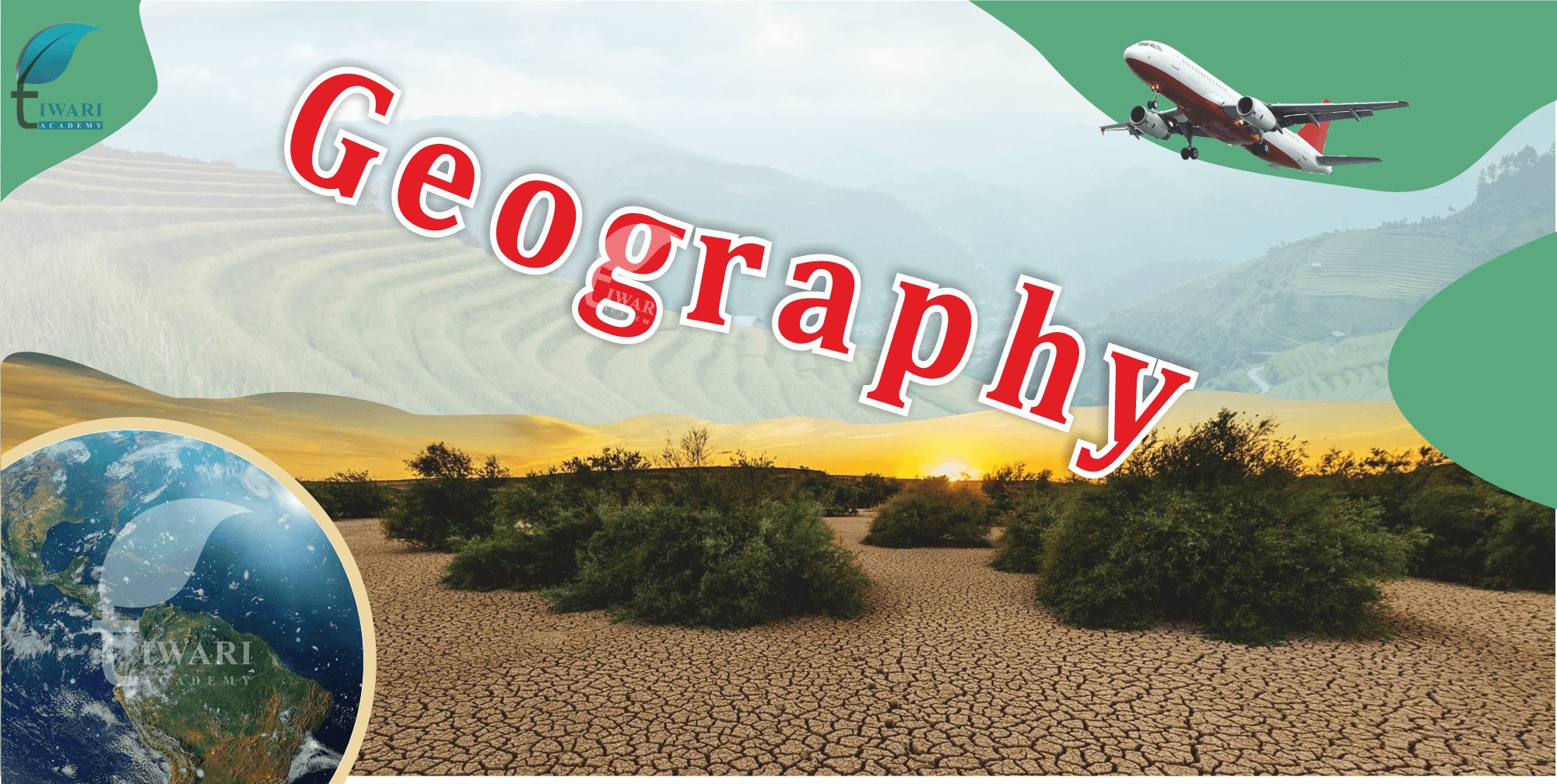Geography is the study of different phenomena in the context of space. This means that it involves the study of different features of our environment like climate, soil, wildlife, population, agriculture, etc with emphasis on their distribution over space. For instance, asking about different types of weather conditions present in various regions of India will come under the scope of geography. It also deals with the reasons behind such variation and distributions.
Division of Geography
Geography has two major subdivisions. First is physical geography, which deals with features of our physical environment like mountains, rivers, oceans, water cycle, soil, climate, natural resources, etc. Second is human geography, which deals with human and cultural aspects of our environment. It deals with population, villages, cities, agriculture, industries, etc.
Application of Geography
- The Knowledge of terrain (meaning mountains, plains, rivers, coasts, etc) of a region helps us in making better social and economic decisions. For example, a farmer needs to have knowledge of the soil and climate of a region to decide the appropriate crop to be sown.
- The knowledge of terrain also helps us to utilize our natural resources optimally. For example,
•We need to take surveys to locate resources of petroleum products to be able to extract them and use them for our energy needs.
•Knowledge of river flows helps a country decide the location of the next dam to be constructed.
•Knowledge of wind velocities tells the optimum location for wind farms and so on - Distribution of natural resources helps plan for setting up of different industries. For example, sugar industries have to be located near the regions of sugarcane production, as sugarcane dries up fast and cannot be transferred from farms to far off industries.
- Knowledge of the distribution of the population helps city planning, so that proper arrangements for water, electricity, roads, food can be made for residents.
- Knowledge of natural phenomena like earthquakes, cyclones, tsunamis can help us avoid making settlements in these risk-prone regions or to make proper adjustments to building designs so that their effects can be reduced.
- The study of geography is also important in the defence strategies of nations. For example, a country with long coastlines will have to emphasize more on the development of the navy as compared to the army. Also, long unguarded coastlines or hilly regions with dense forests can be used by terrorists to infiltrate in a country.

Historical facts of Geography
Eratosthenes of third century BC is considered to be the first geographer in human history. He was a Greek mathematician and astronomer who accurately calculated the circumference of Earth. In ancient times geography flourished in Greece and then in China.
In the middle ages, Abu Biruni contributed significantly to mapping, latitude, longitudes, and finding distances between cities. In Europe, the Renaissance led to the Age of Discovery, and many explorers like Columbus, Marco Polo, Vasco da Gama went out to search for new lands through sea routes. This led to great developments in mapping and navigation.
The advent of new technologies like computers, satellites, remote sensing, GPS, has helped geography grow by leaps and bounds.
Scope of Geography
After studying geography at an intermediate level, a student can go for graduation in geography. Graduation degree can be a B.Sc., B.Sc (Hons), B.A., B.A.(Hons). It is usually of 3-year duration. Some colleges also accept non-humanities students for their graduation courses in Geography.
After graduation one can become a geography teacher or research assistant. He/she can also go for a master’s degree in geography or any of the general career options like civil services, MBA, and likewise. Geography is one of the optional subjects in the UPSC civil service exam and thus makes preparation easier.
Master’s degree courses in geography are generally of one or two years. After this, you can become a cartographer, city planner, GIS specialist, meteorologist, climate change analyst, pollution analyst, hydrologist, etc. One can also go for M.Phil. or Ph.D. in geography to become a researcher or professor.
What are the major branches of geography?
Geography has 2 major branches: physical and human geography.
Is geography a science?
Yes, geography is a science as its conclusions are derived from proper hypothesis, rational observation, and evidence-based conclusions.
What are the career options for a geography student?
Apart from general career options like business management and civil services, a student of geography can become a cartographer, city planner, GIS specialist, meteorologist, climate change analyst, pollution analyst, hydrologist, teacher, professor, researcher, surveyor, and so on.



